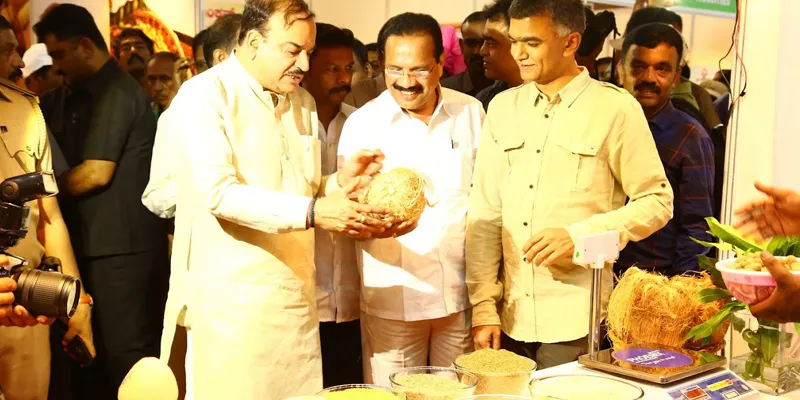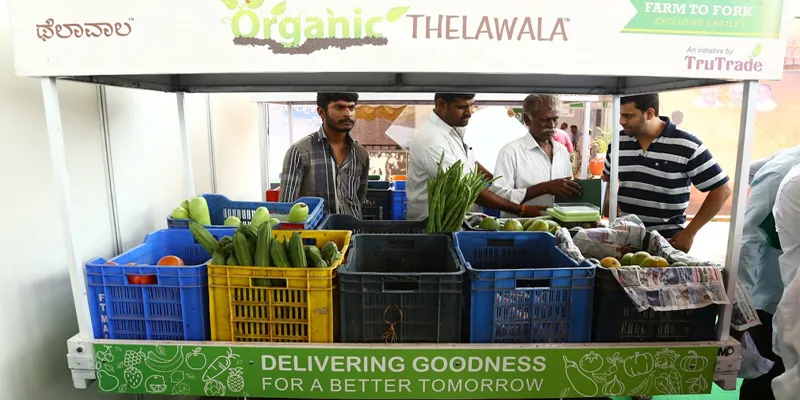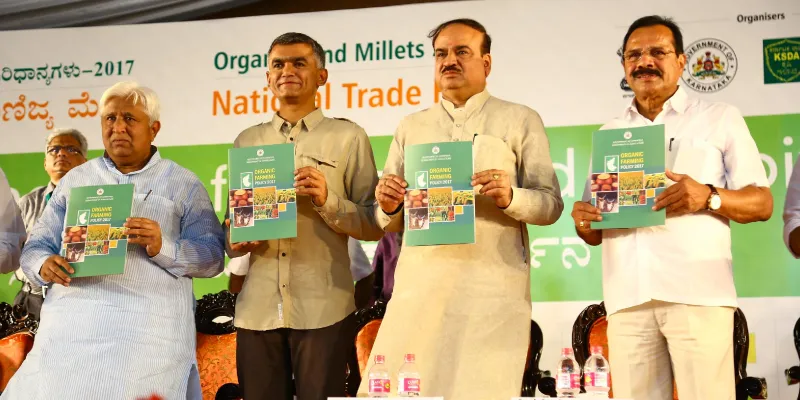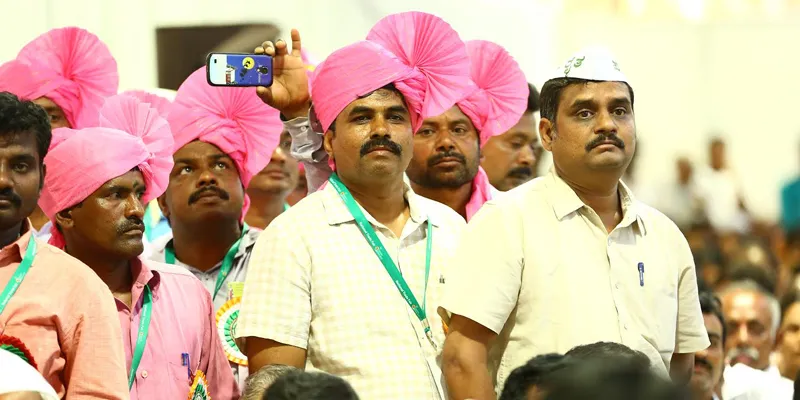Organics and Millets Fair renews interest in the superfood
A national trade fair aims to be a catalyst and bridge gaps between F2B, B2C, and B2B as coarse grains are now being regarded as superfoods that promote a healthy and nutritious lifestyle.
The three-day Organics and Millets National Trade Fair and exhibition got off to a rollicking start with the venue buzzing with energy even before the official start of the event.

Farmers, the backbone of India’s economy, are in search of a retail connect at the event which hopes to bridge the gap not only between demand and supply but also between the farmer and the procurer.
The consumer, for once, was spoilt for choice at the exhibition venue as established companies and startups showcased their wares from varieties of millets to organic tea and banana fibre bags.
There were also agri-research organisations in both the public and private sector explaining their work, which could take the country away from the over-dependence on junk that has led to an increase in obesity, diabetes, and cardiovascular diseases.
The humble millet was at the centre of all the action. Once condemned to a corner as farmers' food, it has made a giant comeback as one of the coarse cereals rich in nutrients.

Karnataka’s Agriculture Minister Krishna Byre Gowda set the ball rolling by officially inaugurating the exhibition area and food corner where only food made out of these grains was being served.
The minister said:
Karnataka has a rich heritage of course cereals. Somewhere down the years, we stopped consuming them. We have to reboot ourselves by switching to organics and millets. These foods help in making us healthier.
Speaking about the Karnataka experience, he said that four years ago, organics and millets were being cultivated on only 4,000 hectares. “Today, we have been able to convert farmers to grow them on 94,000 hectares. Apart from this, we have set up 14 farmer federations with 60,000-70,000 farmers growing organics having benefited as the federation acts as an aggregator of such produce from where retailers can source. This value chain will be further strengthened in the days to come as farmers have realised they get a good price. It’s a win-win situation for farmers, procurers, and even the consumer,” he said.

He said with the farmers becoming more organised, the State government is training them in growing, grading, and packaging so that they get a better price. “There are large supermarket chains that are having difficulty procuring organics. The paradox is that farmers are not getting sales and big retailers are unable to procure despite products flying off the shelves. This is the reason we have banded together small farmers and formed federations with them. The federations have filled the gaps. Such a facilitation process was the need of the hour.”
Already B2B, B2C, and F2B interactions are happening. BigBasket is signing an expression of interest to source organics and millets directly from farmers.
At the inauguration, the Government of Karnataka also released its Organic Policy, 2017, which will help the state improve on many fronts. A millet recipe book was also released on the occasion.
Union Minister for Programme and Policy Implementation, V Sadananda Gowda, said the Government of Karnataka needed to be congratulated for being a catalyst between farmers and those who source organics.
He stressed that in drought-prone areas, farmers should shift to millets as their cultivation needs very little water. For example, 4,000 litres of standing water is required to grow one kg of rice. With climate change being witnessed, the future has to move towards organics and coarse grains, he opined.

There is a need to address all gaps and build a value chain, Gowda said. By 2020, all farmers across the country will have a soil health card, he added.
Union Minister of State for Agriculture, Sompal Shastri, an advocate of organic and coarse cereals, put it bluntly when he said fertilisers were spoiling the health of people and weakening soil across the country. It was also affecting the GDP, he said.
Minister for Chemicals and Fertilisers and Parliamentary Affairs, Ananth Kumar, said Prime Minister Narendra Modi directed him to introduce subsidies for organic fertiliser and claimed that it was the first time the country had ever done so.
Commenting on the call to make Bengaluru the capital for organics and millets, Kumar wholeheartedly endorsed it and said he had made the switch to organics many months ago and that it had led to positive changes in his health.
Kumar also stressed that one should not politicise an initiative for farmers such as this one and called for a roundtable to discuss all issues. He also said the Centre would think of ways to offer minimum support price for coarse cereals too and not just ragi and jowar.
Kumar, upset with the fact that he was called a chemicals and fertiliser minister who distributed urea that degraded soil, said the government cannot remove the usage of urea and other fertilisers in one shot. “In fact, the Indian Council for Agriculture Research has helped reduce harmful effects of urea by coming out with a neem-coated urea product. “This reduces harm on soil and improves productivity too. The need of the hour is to slowly reduce urea usage and increase organic and bio-fertiliser use. The Centre and states should approach farmers and stress on this.”
Many speakers at the inaugural called for millets to be distributed through the public distribution system, which will help develop a healthier populace.
(Photos by R Raja)







